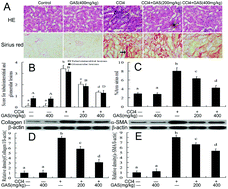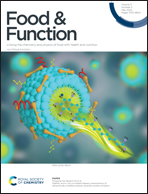Effects of gastrodin against carbon tetrachloride induced kidney inflammation and fibrosis in mice associated with the AMPK/Nrf2/HMGB1 pathway
Abstract
Gastrodin (GAS), the main phenolic glycoside extracted from Gastrodia elata Blume, exhibits potential renoprotective properties. Here, we examined the protective effects of GAS on carbon tetrachloride (CCl4)-induced kidney inflammation and fibrosis in mice, and explored its underlying mechanisms. Our research findings revealed that GAS improved CCl4-induced renal damage in mice. GAS inhibited kidney fibrosis and the deposition of collagen and α-smooth muscle actin (α-SMA). GAS suppressed CCl4-induced inflammation in kidney tissue, as indicated by the decreased levels of proinflammatory cytokines, including tumor necrosis factor-α (TNF-α) and interleukin-6 (IL-6). The renoprotective effects of GAS were associated with inhibiting oxidative stress by regulating nuclear factor-erythroid 2-related factor 2 (Nrf2)-mediated antioxidant signaling and increasing adenosine 5′-monophosphate activated protein kinase (AMPK) activation. Furthermore, GAS supplementation inactivated the receptor for advanced glycation end products (RAGE) and the high-mobility group box-1 (HMGB1) pathway. GAS inhibited the activation of Toll-like receptors (TLRs), nuclear factor-kappa B (NF-κB) and transforming growth factor (TGF)-β. Collectively, this study clarified that GAS attenuates CCl4-induced kidney inflammation and fibrosis via the AMPK/Nrf2/HMGB1 pathway.



 Please wait while we load your content...
Please wait while we load your content...